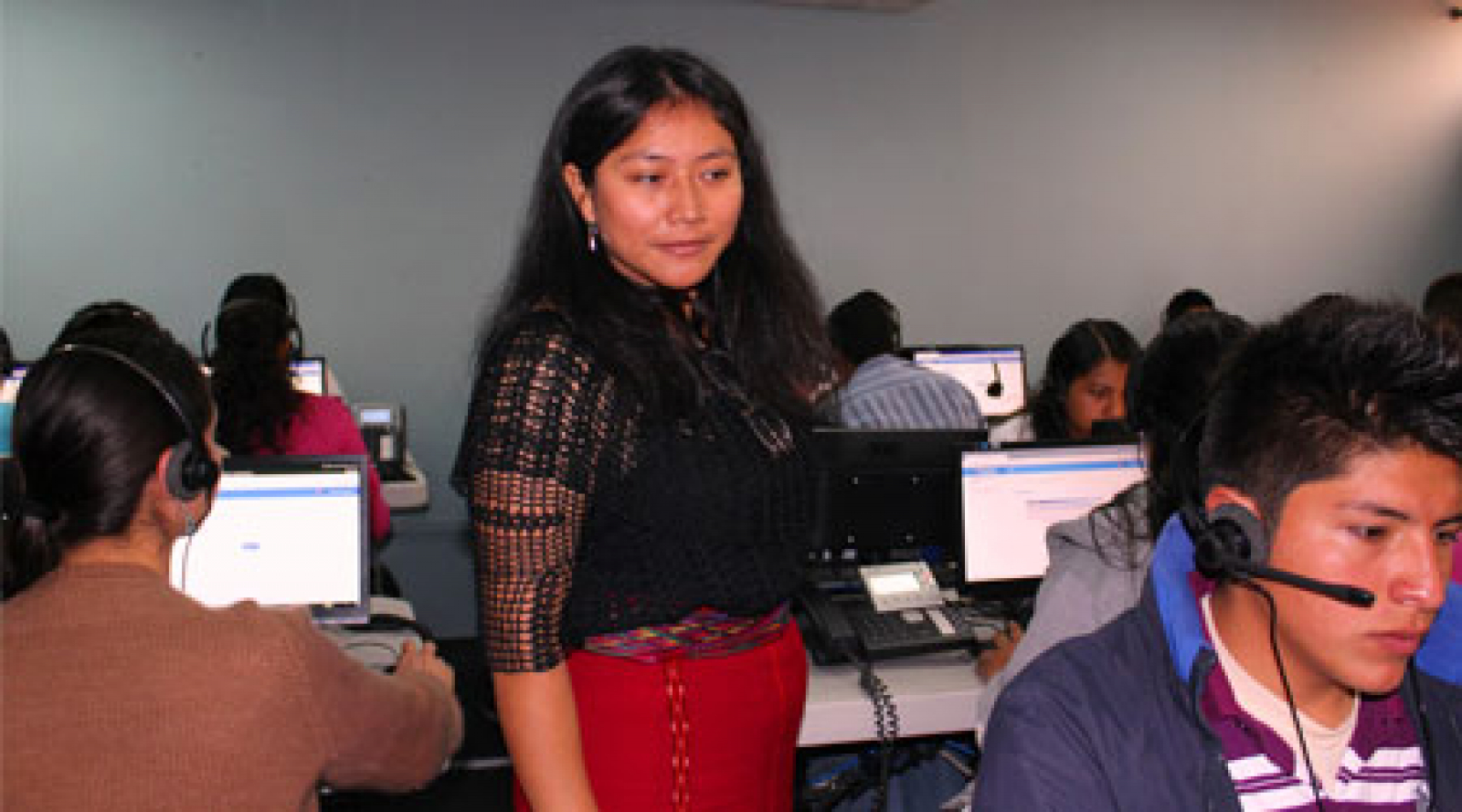
SHARE
Nearly six months after sustained citizen protests demanding increased government accountability for corruption, Guatemalans elected former comedian and actor Jimmy Morales to serve as the country’s next president last month. Campaigning with the slogan “not corrupt, not a thief,” political newcomer Morales defeated Former First Lady Sandra Torres with 67 percent of the votes in the October 25 run-off election. NDI had the opportunity to sit down with Matilde Terraza, who, as a member of Acción Ciudadana, coordinated Guatemala’s nationwide parallel vote tabulation (PVT). Commonly called a “quick count”, this is a citizen observation methodology used to independently verify election results. NDI has helped build groups capacities around the world to carry out PVTs. Terraza discussed the outcome of the quick count and the historic changes currently taking place in Guatemala.
Terraza first became an election observer in 2003 in her hometown of Nebaj, El Quiché, in Guatemala’s western highlands. El Quiché is a region with a predominantly indigenous population that experienced a high level of violence during the armed conflict, which spanned from 1960 to 1996 and left an estimated 200,000 killed or missing. In 2011, former President Efraín Ríos Montt, who held office during the most violent years of the conflict, was put on trial for committing genocide against the indigenous population. Given community divisions on the genocide charge, the case fueled tensions in Nebaj. That same year, with the trial as a backdrop, Terraza again observed the elections in her hometown. This time, one of the candidates rejected the results and the elections were repeated. With increased tensions and potential for violence, Terraza “saw an important moment for election observation to validate the process and to act as an impartial party to help mitigate violence.” She raised funds to organize and carry out an observation with support from Acción Ciudadana. This experience helped lead to her current position as quick count coordinator.
During the September 6 first-round and October 25 run-off presidential elections NDI partnered with a consortium of Guatemalan election monitoring organizations called Mirador Electoral to verify the election results, and monitor violence, conflict and social inclusion throughout the electoral process. Acción Ciudadana, the consortium member responsible for the quick count, collected electoral data from 1,800 observers stationed at polling stations throughout the country.
Terraza believes the observation process “builds democracy through strengthening the participation of citizens through their involvement in the observation as well as through strengthening the transparency of the elections.” By providing an impartial verification of the electoral results, the observation also helps either uncover manipulation or improve confidence in the results. On October 25 the quick count results mirrored those reported by the electoral authorities, thereby verifying the official results. The Acción Ciudadana quick count projected 67.29 percent of the vote for Morales and 32.71 percent for Sandra Torres, which varied by only .4 percent from the official election results.
Additionally, observation efforts by Mirador Electoral members Collective for the Defense of Women’s Rights in Guatemala (CODEFEM) and the National Network of Young Mayan Organizations (RENOJ) focused on indicators on the social inclusion of women and youth. The observation showed an increase in women’s political participation as polling station staff, with women accounting for an estimated 46.6 percent of polling station heads and 51.7 percent of total polling station staff. Despite these advancements, significant obstacles to the meaningful participation of indigenous people and youth still exist. In 69 percent of the observed municipalities, voters were unable to participate in their first spoken language, as required under Guatemalan election law.
Terraza sees a new Guatemalan civil society emerging. “Through the protests, civil society was able to express itself, which is a new phenomenon this year.” Civil society had been less active, Terraza explained, as result of fear of repression, a lingering effect of the 36-year conflict that ended with the 1996 peace accords. Critical to the development of new civic activism has been the role of the International Commission Against Impunity in Guatemala (CICIG) in helping Guatemalan prosecutors to bring charges against powerful, high-level political actors in corruption cases. These cases “spread public awareness of the extent of corruption and created a space for civil society to peacefully protest without fear of reprisal,” said Terraza. Terraza believes the key challenge will be continuing to organize and press for reforms to make the country’s democratic system stronger.
When asked why she believes this work is important, Terraza reflected on her father, who was kidnapped and disappeared during the armed conflict. At the time, her mother was four months pregnant with her. “I want to make sure that this doesn’t happen again and the best way to do that is through strengthening the democratic system,” she said. “I believe in the power of democracy and its ability to attend to the needs of the population, including respect for justice, human rights and transparency.”
In her future, she plans to continue working to empower civil society with a specific focus on the political participation of indigenous women and youth. For the future of Guatemala, she is confident that the population now understands its role in a democratic system and that civil society will be able to actively participate and make their needs known.
These efforts were conducted as part of programs implemented with support from the Norwegian Ministry of Foreign Affairs, Swedish International Development Cooperation Agency and United States Agency for International Development.
Read more:
Published on November 5, 2015


